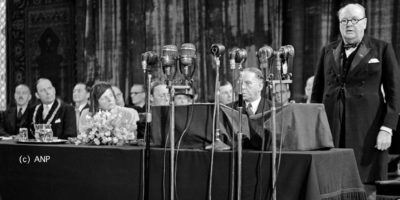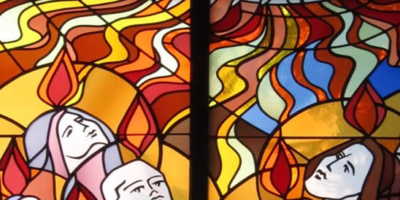Yesterday was Trinity Sunday on traditional church calendars, the first Sunday after Pentecost. For those of us from free church traditions, Trinitatis is not something we give much attention to. Much to our impoverishment.
For a consciously Trinitarian approach to life and faith is essential for a balanced, all-rounded Christian lifestyle. And reflection on the Trinity, and on whether or not we are living out a fully Trinitarian faith in which we understand the work of each Person of the Godhead, can help us live out a more balanced faith.
While nowhere to be found in the Bible, the word ‘Trinity’ was first used to refer to the Persons of God by a Berber named Tertullian. Born less than a century after Paul’s death, Tertullian lived in Carthage, in today’s Tunisia, then part of Roman North Africa. Today that is part of the Muslim world for which millions of Christians are praying during the 30-day Ramadan fast (see www.30daysprayer.com).
Tertullian has been called the ‘father of Latin Christianity’ and the ‘founder of Western theology’. He and other early church fathers wrestled with articulating the revealed paradox that God is one and yet three. They did not resolve the paradox. They simply named it. Trinity is not a solution. It is simply a one-word designation that holds the paradox intact: Three in one, our Triune God.
Lost in translation
We can appreciate the challenge these early church fathers faced as they wrestled with expressing concepts that easily got lost in translation from Hebrew to Greek or Latin. Take the ‘Shema’, for example, the prayer in Deuteronomy 6:4 – ‘Shema Israel, Adonai Elohenu, Adonai Echad.’ ‘Hear, O Israel: the LORD our God, the LORD is one’. The Hebrew word translated ‘one’ is echad, which expresses a compound unity of oneness.
This same word is used for a man and a woman becoming one [echad] flesh, in Genesis 2:24. Or in Genesis 11:1 – ‘Now the whole earth used the same [echad] language and the same [echad] words.’ Or five verses later: ‘And the LORD said, “Behold, they are one [echad] people, and they all have the same [echad] language”.’
The Hebrew word El is the singular form for God. Yet its plural form, Elohim, is used 2607 of the 2845 times the word ‘God’ is used in the Old Testament.
Not only is the word for ‘God’ usually used in the plural form, but several verses refer to God as ‘Us’:
• Then God said, ‘Let Us make man in Our image, according to Our likeness’ (Genesis 1:26)
• Then the LORD God said, ‘Behold, the man has become like one of Us, knowing good and evil’– (Genesis 3:22)
• ‘Come, let Us go down and there confuse their language, that they may not understand one another’s speech.’ (Genesis 11:7)
Implications for daily life
The implications of the doctrine of the Trinity are profound. As Michael Schluter has often said, before anything material existed, there were relationships. Love among the members of the Godhead existed before creation. Love belongs to ultimate reality. Love is from eternity to eternity. In monotheistic religions without the Trinity, there is no-one to be loved before the creation.
Pope Francis points out that the Trinity is a relational reality. The doctrine of the Trinity is a description of that reality. Our starting point for unity is not doctrine but relationship. Description can follow.
The Trinity also means that ultimate reality is unity with diversity. The goal of history is everything becoming rightly related to each other, into shalom, unity in diversity. Therefore contributing to Europe’s quest for unity with diversity aligns with God’s ultimate goal for history. And that is why we need to help restore biblical foundations to the European project of ever closer union of peoples, (not nations).
We may be able to rattle off the Apostles Creed, which describes the role of each of the three Persons of the Trinity. But that doesn’t guarantee that we actively live out our trust in each Person of the Godhead.
Belief in the Father, maker of heaven and earth, implies an active trust that all he has made, including matter, space, time and energy, are gifts from him; that we humans have value and dignity because we reflect his image; that our work is part of his creation mandate to bring order out of chaos and care for his creation.
Belief in Jesus Christ his only Son, who was crucified, dead and buried and who rose again from the dead, implies we trust in him for our salvation, not in our own ability, or psychological remedies or any other alternatives.
Belief in the Holy Spirit implies our dependence on his empowerment in our daily lives, not on particular techniques or even spiritual disciplines.
We will never fully understand the paradox of the Trinity. It is part of the mystery and the unfathomable depths of our God.
Till next week,



